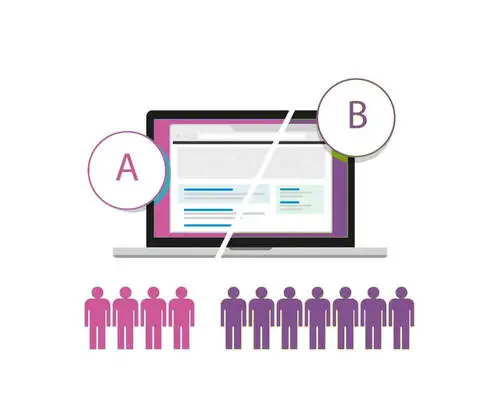Business Blogging 101: What You Need to Know Before Your First Blog
5 MIN READ

Did you know that motel is short for motorists’ hotel? Or that car comes from the word carriage? And don’t forget that pixel is a faster way of saying picture element. Just like these words have been shortened from their original, the word blog is a condensed version of a longer word. But while the word has been shortened, the impact of blogs has grown tremendously. Read on to learn the origins of the blog, why your business should be blogging, and the do’s and don’ts of getting your blog started.
History of the Blog
Let’s take a trip back to 1994. It was huge year for the newly emerging internet: Amazon and Yahoo both opened for business, the first song was released for free online (“Head First” by Aerosmith if you want to impress your friends with some trivia), a AT&T banner ad became the first form of digital advertisement, and Swarthmore college student Jason Hall started a digital diary where he shared his favorite photos and websites. Hall’s digital diary, or personal homepage as they were called back then, quickly grew in popularity. Others followed suit with personal homepages and, though the term wasn’t yet coined, blogging officially become a thing.
In 1997, Jorn Barger, a developer who “logged the web” on his personal homepage, began using the term “weblog”. Weblogs continued to grow rapidly and, thanks to programmer Peter Merholz, weblog was shortened to “blog” in 1999 and the moniker still remains 20 years later. In 2004, “blog” was added to the Merriam-Webster dictionary and named the Word of the Year.
Flash forward to the present, where there are now more than 500 million blogs.
Why Your Business Should be Blogging
Blogs are no longer just for digital diarists like Jason Hall. Today they’re considered an essential part of marketing strategy, particularly for small and midsize businesses. Blogs are an effective and affordable way to establish a strong web presence, build brand awareness, and engage with customers.
It’s nearly impossible to do internet research and not come across a blog post. By delivering the information your audience is looking for, blogs easily build brand awareness and create an informative and positive first interaction with your brand. With 78% of internet users conducting product and service research online, a business can’t afford to miss out on being where their potential customers are searching.
Businesses with blogs see:
More visitors = most customers.
Business blogging has more benefits than just increased leads and website visitors, blogging builds brand awareness and trust by establishing your business as an industry-expert and thought leader. 69% of online users say a blog adds credibility to a website.
There’s also some SEO magic that takes place because blogging has a significant impact on how your website ranks with Google. Websites with blogs have 400% more indexed pages, which is a critical factor in how search engines like Google rank a website.
Planning Your Business Blog
All those stats on business blogging have you pumped up, right? You’ve got your blogging hat on, a big cup of coffee, and are ready to crank out some content and see those customers come pouring in. In the words of Nate Dogg: Hold up, waiiiiiit.
A mistake that far too many businesses make is that they create a blog for the sake of creating a blog, then are disappointed when the blog doesn’t bring in the massive uptick in leads and website traffic they were expecting. A lot of planning and strategizing needs to take place before you write that first blog. This planning doesn’t stop once you launch your blog. You’ll need to constantly monitor trends and evolve your blog strategy over time. Think about the following questions prior to writing your first blog:
Who are you writing this blog for?
The number one don’t of blogging is to try and write content for everyone. Proper research needs to be done to determine who your audience is, what they are searching for and how they are searching for it. Fortunately, there are plenty of free tools to help you with your research.
What is your audience searching for?
The number one do of blogging is very closely related to the number one don’t: Write for your customers, not for you. You can do this by doing keyword research. In other words, look up keywords and phrases related to your business that people are searching for. For example, if you own a wine shop, type “wine” into a keyword tool to find out what people interested in wine are searching for. What cheese pairs with what wine is a popular search term in Google. You could write a blog titled “How to Pair Cheese with Wine”. Ahrefs.com is a great resource for free keyword tools to help find the phrases your audience is looking for.
How frequently are you able to create blog posts?
Consistency is critical to the success of a business blog and, just like you would have a financial budget for any marketing efforts, it’s important to establish a time budget for blogging. Keep in mind that a well-researched and composed blog can take more than three hours to create. Furthermore, businesses that publish more than 16 blog posts per month get almost 3.5 times more traffic than companies that publish 1 - 4 posts. If all you can commit to in the beginning is one per week, that’s OK, but be consistent with that one post per week. Don’t post once or twice a week in the beginning then go radio silent for a month. Plan out your blog schedule at least 90 days in advance using a blog calendar.
How will you promote your blog?
Keep in mind that while some blog posts can go viral, many take years to gain full traction. This is because of how search engines give more SEO credit to sites that have established blogs. Search engines like Google need to know you’re a long-term and consistent provider of quality content. When you’re first getting started with your blog, it’s important to share it through social media as Google will count clicks from social media and other sites as “credit” that you’re a https://docs.google.com/document/d/1BB3A5LetY1ypph6ufKl7-u80NRTcwPrUE-YlgwHP-VE/editlegitimate blog with solid content. Scheduling blog posts on social media is easy and tools like Hootsuite will help.
Now that you know the history of the blog, why you should be business blogging, and how to plan your blog strategy, it’s time to write your first blog.
If you want the benefits of business blogging, but are worried about the time-commitment, considering hiring an agency to plan, schedule, and write your business blog for you.
Recent Posts

Business Blogging 101: How to Write Your First Blog
Remember your first time?

SEO for Beginners: How a Search Engine Works
We have a lot of clients that want to learn about SEO, but struggle to find...

Lead Generation for Your Small Business
So you've generated some website visitors. Oh, the potential. But 96% of...
